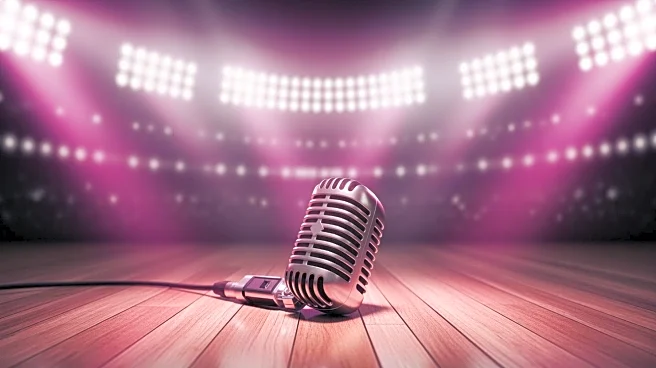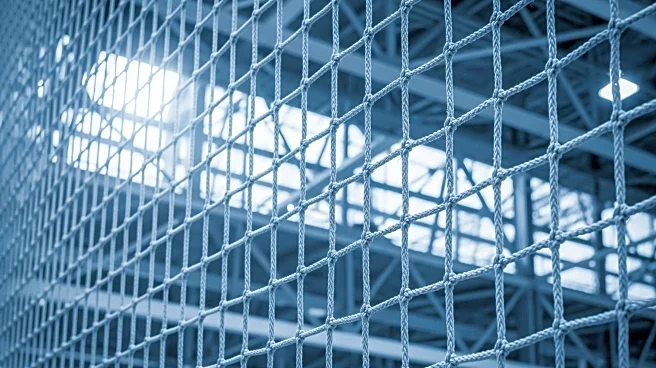What's Happening?
The International Rescue Committee (IRC) is actively involved in providing humanitarian aid to Jamaica following the devastation caused by Hurricane Melissa. The hurricane, which made landfall as a Category 5 storm, has left significant destruction in its
wake, particularly in the regions of St. Elizabeth and Westmoreland. These areas have been severely impacted, with infrastructure damage leading to isolation and difficulty in delivering essential supplies. The IRC, along with other aid organizations, is working to distribute food, water, and other necessities to affected communities. Despite these efforts, many residents are still struggling to access clean water and basic goods, with some resorting to using river water for daily needs. The Jamaican government, along with international partners, is coordinating relief efforts to address the immediate needs of the population.
Why It's Important?
The situation in Jamaica highlights the critical role of international aid organizations like the IRC in responding to natural disasters. The challenges faced in delivering aid underscore the vulnerabilities of island nations to extreme weather events, which are becoming more frequent and severe due to climate change. The IRC's involvement is crucial in mitigating the immediate humanitarian crisis, but the broader implications include the need for improved infrastructure and disaster preparedness in vulnerable regions. The economic impact is also significant, as the destruction of homes, crops, and infrastructure will require substantial resources for recovery and rebuilding. This event serves as a reminder of the importance of international cooperation and support in addressing the consequences of climate-related disasters.
What's Next?
In the coming weeks, the focus will be on restoring essential services such as electricity and telecommunications, particularly in heavily affected areas like Falmouth. The Jamaican government, with support from international partners, will work on rebuilding efforts, aiming to enhance resilience against future disasters. The Caribbean Catastrophe Risk Insurance Facility has announced a record payout to Jamaica, which will aid in the financial recovery process. Additionally, there will be ongoing assessments to determine the full extent of the damage and the long-term needs of the affected communities. The IRC and other aid organizations will continue to play a vital role in providing support and resources as the recovery process unfolds.
Beyond the Headlines
The aftermath of Hurricane Melissa in Jamaica raises important questions about the long-term strategies needed to combat the effects of climate change on vulnerable regions. The reliance on international aid highlights the need for sustainable development practices and investment in resilient infrastructure. Furthermore, the situation underscores the importance of insurance mechanisms like the Caribbean Catastrophe Risk Insurance Facility, which provide financial support to countries facing natural disasters. As climate change continues to pose significant risks, there is a growing need for global collaboration to develop effective solutions that address both immediate humanitarian needs and long-term resilience.















